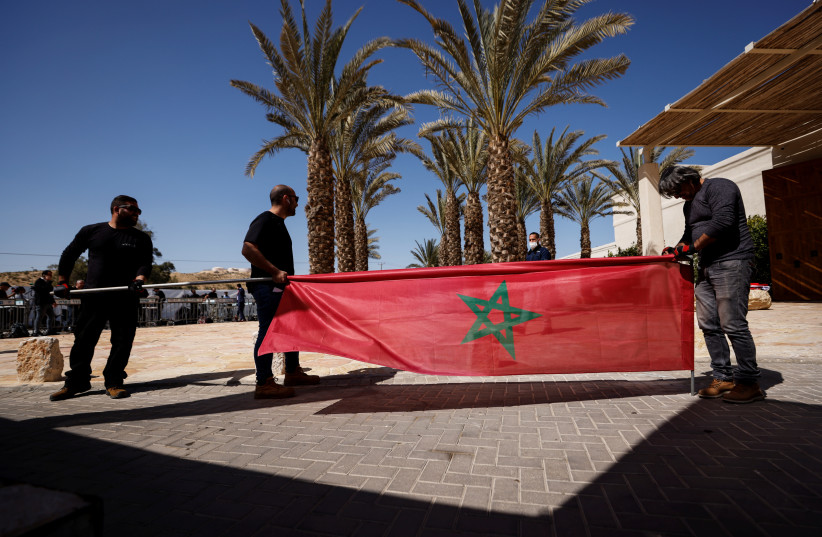Moroccan delegation visits key Israeli logistics center to share its expertise

The visit is another step in the collaboration between the two countries since ratification of the Abraham Accords
Start-Up Nation Central welcomed a delegation from the Moroccan Agency for Logistics Development (AMDL) on Sunday to advance collaboration between the two countries in the logistics sector and to promote innovation ecosystems in both countries.
The visitors shared logistics expertise with several key Israeli players, including The Israeli Supply Chain Management Forum, the Israel Innovation Authority, the Israel Postal Company and Israel Airport Authority logistics centers.
The visit was intended to further enable the exchange of knowledge, expertise and innovation between Moroccan and Israeli businesses, which have already taken great steps to collaborate since the ratification of the Abraham Accords in 2020.
Connect2Innovate comes to life
The delegation’s three-day visit builds on a memorandum of understanding (MOU) signed by the two organizations in Casablanca last May during the “Connect2Innovate” conference.
At that conference, Start-up Nation Central CEO Avi Hasson highlighted the mutual benefit offered by extensive collaboration between the two countries.
“Morocco and Israel are actually very complementary on the human capital front,” said Hasson.
“Morocco generates a host of talented graduates in computer science and engineering from the local universities and, many times, aren’t able to find placement and employment opportunities,” he explained. “Israel, because it’s very successful, suffers a shortage of human capital, and needs a lot of people to be a part of its ecosystem. We think there’s an opportunity to join forces to create offshore opportunities for Israeli companies in Morocco.”
Since then, many more deals, memorandum signings, and delegation visits have taken place between the two countries.
Recently, in November, a memorandum of understanding was signed between Morocco’s National Office for Electricity and Drinking Water (ONEE) and Israel’s national water company Mekorot. The signing, which took place during the Global Investment Forum 2022, aims to establish a framework for the development of cooperation between the two institutions in the areas of drinking water and liquid sanitation.
“The accords have opened new and fascinating business opportunities and horizons for [Mekorot], and it intends to fulfill those opportunities with an abundance of solutions for the water economies of neighboring [and] distant countries,” said CEO Amit Lang.
Morocco has a lot to gain from Israeli innovation in the area of water sanitation, explained Salma Bougarrani, co-founder and CEO of the Moroccan organization Green Watch, which develops and promotes accessible water sanitation solutions throughout the country.
“We have more than 32,000 villages in Morocco without access to safe sanitation, and more than 14 million people in Morocco still [output] their wastewater directly into rivers,” she said. “There is a huge opportunity to work on rural and decentralized sanitation, but also to find low-tech solutions to democratize this kind of solution in rural areas in Morocco.”
Jerusalem Post Store
`; document.getElementById("linkPremium").innerHTML = cont; var divWithLink = document.getElementById("premium-link"); if (divWithLink !== null && divWithLink !== 'undefined') { divWithLink.style.border = "solid 1px #cb0f3e"; divWithLink.style.textAlign = "center"; divWithLink.style.marginBottom = "15px"; divWithLink.style.marginTop = "15px"; divWithLink.style.width = "100%"; divWithLink.style.backgroundColor = "#122952"; divWithLink.style.color = "#ffffff"; divWithLink.style.lineHeight = "1.5"; } } (function (v, i) { });


